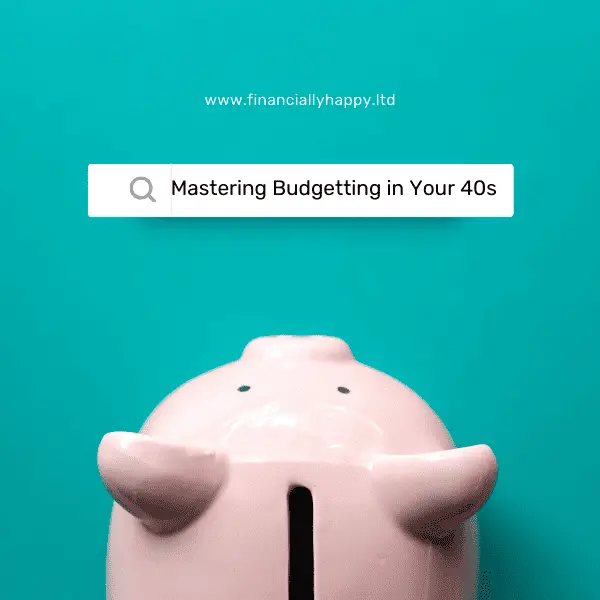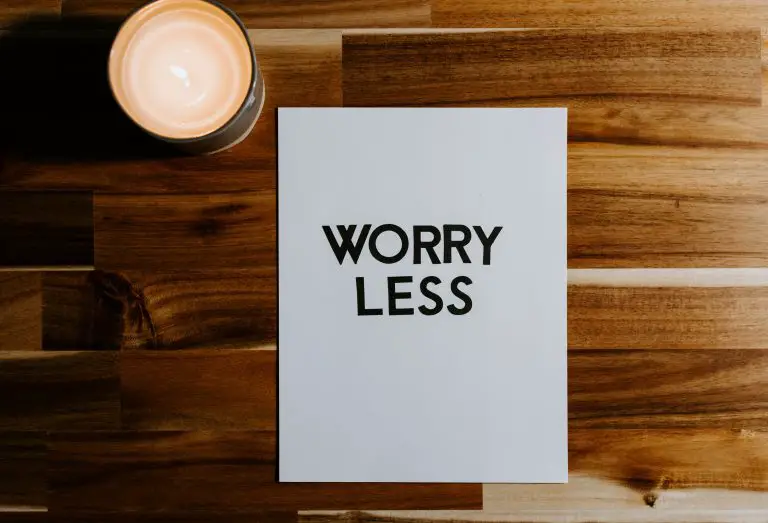From Anxiety to Action: Coping with Financial Stress Symptoms
Are you constantly worrying about your finances, feeling overwhelmed by bills, and struggling to make ends meet?
Financial stress can significantly impact your mental health, leading to symptoms such as anxiety, depression, and even physical ailments. But don’t worry, there are practical ways to cope with financial stress and turn anxiety into action.
This article will explore the different symptoms of financial stress and their impact on mental health. We will also provide actionable tips and strategies to help you manage your finances and reduce stress levels. We’ve got you covered from creating a budget to seeking help.
Financial stress affects millions worldwide, and it’s crucial to understand how to manage it effectively. So, let’s dive into financial stress management and take the first step towards a healthier financial future.
Read on to hear a few thoughts on dealing with financial stress symptoms, their root causes and how to start reducing your money’s worries.

Financial stress and mental health
Financial stress symptoms are the feelings of anxiety and worry that arise when you are facing financial difficulties.
This can happen when you struggle to pay bills, deal with unexpected expenses, or live paycheck to paycheck.
You may feel overwhelmed, hopeless, or like you’re in a never-ending cycle of debt. Financial stress can also lead to physical symptoms such as headaches, insomnia, and even depression.
It’s important to recognize these symptoms and manage your stress to start feeling more in control of your finances and life.
Causes of financial problems
Financial problems can have various causes, such as overspending, job loss, medical expenses, unexpected emergencies, or living beyond your means.
Poor financial planning, high debt, lack of financial education, and low income can also contribute to financial problems.
Identify your financial problems’ root causes to develop a plan to address them effectively.
By understanding the causes of your financial problems, you can take steps to improve your financial situation and prevent similar issues in the future.
How to cope with financial stress
There are a lot of ways to cope with financial stress, and it depends on what is causing the stress in the first place.
If you’re struggling to make ends meet, your priority should be finding ways to save money and cut expenses. We’ll cover a few of these below.
If your financial stress is caused by debt, then you’ll need to focus on ways to pay off your debts as quickly as possible.
This may involve creating a budget and sacrificing to put more money towards your monthly debts.
You may also consider consolidating your debts or speaking with a credit counsellor for additional help and advice.
No matter what is causing your financial stress, the steps below can help ease the burden.
How does money stress start?
Not being interested in money, whether for good or bad reasons, is a common starting point for going downhill.
Or on the flip side is over interested in money but not for what it can do for you in the long term but just for what it can buy you next on your wish list, i.e. how quickly you can spend it.
If you are not interested in money or what money can do for you, you probably won’t be tracking or managing it.
At best, this means you have no idea what’s going on at worst, you don’t know how fast you are sinking. If you are not interested in money, it might be that you have nothing to save up for?
No medium or long-term plans to work towards, just day-to-day need to spend your money on. This is maybe ok in the short term, but what about the long term?
Finding money confusing due to never being taught how to manage it, poor role models and constant media to buy now and pay later can lead you to make poor decisions with money.

If I ignore it, will it go away?
Ignoring the problem is also a typical basis of financial stress. Overlooking the letters, avoiding money conversations not wanting to know whats going on is a sure-fire way to your money
Your lack of attention to what money is coming in and going out can lead things slowly or swiftly spiralling out of control. Not keeping on top of spending and, even more importantly, overspending will get things out of control.
This lack of control may lead to borrowing money to pay for day-to-day things or even unnecessary luxuries. Living paycheque to paycheque Living paycheque to paycheque is a typical result of poor money management.
Only just making enough money each month will be incredibly stressful.
If you are unsure if your money will last until the end of the month, it makes your decision even more critical.
However, being stressed is not a good place to make decisions. If you only have enough to meet your immediate needs at the end of each month, you probably can’t start saving any money.
If you cannot save, reaching important goals will be even more challenging.

Ahhh why did I do that!
What does financial stress do to your body?
Financial anxiety can lead to many physical reactions.
If you are stressed about money, it will likely keep you awake at night.
Poor sleep is a cause of many illnesses, including increased stress, headaches, low immune system and would you believe it even more poor sleep.
The cumulative effect of poor sleep can lead to low emergency levels, lack of motivation, and difficulty making important decisions.
The lack of sleep and feeling of stress makes making good decisions around money even more tricky.
How can financial stress affect relationships?
The above stress symptoms can also affect your day-to-day relationships making and maintaining relationships even more difficult.
The more stressed you are about money added to poor sleep is likely to make you more irritable and short-tempered. This can increase the tension around the home and work relationships.
This can shorten your temper and make you prone to arguments or withdrawal from social situations as you cannot cope with them.
Fear about what the future holds for you and your loved ones can make planning seem pointless and taking action when needed impossible.
All these things combined can make keeping and maintaining a home life alongside a job challenging to juggle Money and mental health.
The above pressures can see even the strongest person has mental health issues.
When you cannot cope with the many challenges thrown at you, you can decline into anxiety, isolation, and withdrawal from friends, family, and work.
Unfortunately, this process makes it even more challenging to cope with money challenges.
A vicious cycle can rapidly develop – poor mental health means managing money is more complicated – worrying about money worsens your mental health.
If you are in a financial crisis, you might need professional medical help to break the cycle.
How do you manage financial stress?
The first step is to gather all the data you can about your money and put it into a simple filing system. Get yourself a folder and dividers; whether hard copy or digital is up to you. Collate all your financial paperwork into a system that works for you. This could be by
- Bank statements
- Credit cards
- Debts
- Household bills
- Day-to-day bills
- Standing orders
- Enjoyment
You will then want to set a prioritisation for your paperwork.
Are there any red letters or demands?
These should be in the front section with notes explaining what needs to be done and when.
It would be good to have a 1 page summary of all your assets and liabilities or a net worth statement at the beginning of the file.
This one-pager will highlight what you are worth after all this time – hopefully, it’s a positive figure – if not it’s showing you where you are starting from and the amount of work needed to get you back to zero.
Why you need financial goals.
At this point, you also need to come up with some financial goals.
Without any goals, you will continue to drift.
The longer you drift, the more financial trouble you are likely to get into. You need something to aim for and make progress towards and something to keep away from, i.e., debt. Your financial goals could be.
- To get out of debt
- Save for a holiday, course, house deposit
- Build an emergency fund
- Make work optional one day/retire.
Once you have a few goals, you see where you are now and the gap to reach them.
How you are going to bridge these gaps might take some time to figure out, but at least you are now starting to think about how you could improve your situation.
Track your money The next step is to understand what is going on. Is it a lack of income or overspending or both?
Start tracking your money
Track your money, so you know what is going on.
You can use pen and paper like the Japanese budgeting method of Kakeibo.
Use two notes books; in the first book
-How much money is coming in?
–setting a savings goal
-How much do you need to spend, i.e. essentials and non-essentials
-What could you do to improve your money situation, i.e., spend less or earn more this month?
-After your savings goal, you divide your remaining income across four headings: living, culture and education, entertainment, and other spending.
This is what you will live off for the month.
In the second book, you note down every penny you spend each day of the month.
You collate your sending at the end of each month and analyse how the next month could be better.
The Kakeibo method claims to be able to save the average person 35% on monthly expenses.
How would saving that amount of money feel to you?
If not analogue, then digital budgeting apps If you don’t fancy doing it with pen and paper, then find an app that will do this for you. Here are a few ideas for some of the current apps out there.
If you are unsure which one to try, why not try one of the free ones and see how you get on.
It’s less hands-on than Kakeibo but will still give you a clearer idea of where your money is going than before. This analysis lets you see where you could get better next month.
Build an emergency fund
The likely most pressing need would be to save for an emergency fund. 3-6 or more months of savings in cash to help ride out any bumps in the road, i.e. house/car repairs, redundancy or health emergency (covid 19)
When you cannot cope with shocks, it will send you right back to the beginning each time something goes wrong.
If you have no savings, the risk of using credit or debt to get out of a hard place is even more tempting, and this is the slippery slope into more and more debt.
All this leads to pressure to earn more money. If not channelled well, this pressure may lead to more desperate attempts to make more money. Either working more hours or taking on more risky jobs.
Being desperate for money may well bring you into contact with risky ventures like day trading, investing in things you don’t understand or closer to people wanting to exploit your urgent cash need.
Getting financial help
When it comes to getting financial help, you have three options.
You can try and do it all yourself.
A DIY approach can be made relatively inexpensively by getting books out of the library, watching YouTube videos, and listening to podcasts about money.
The downside is that you need to read, watch, and listen to quite a lot to build up the knowledge, confidence, and understanding to manage your own money effectively.
Knowing that, unfortunately, the weakest link in your finances is often you and your behaviour.
Do it with someone else
You could work with a financial coach who would sit alongside you, supporting, guiding and educating you on money management’s emotional and practical side.
This option keeps you in control of your money by strengthening your knowledge and emotions around money. The potential downside of this option is that it will be more of an investment than doing it yourself.
Have it done for you
Your third option is to hand it over for someone else to manage it for you.
This could be a financial advisor or a wealth manager.
The downside is that it can be disempowering as you are none the wiser about what is happening.
It is much more expensive than the other options, and you need a lot of wealth to interest a financial advisor.
This is generally once you have created significant wealth and need someone to help you manage the movement of these funds, including taking into tax considerations.
If you are in a debt crisis, there are a few good sources of help if you are in debt crisis:
FAQ: Financial stress symptoms
What are symptoms of financial stress?
Financial stress is a feeling of anxiety caused by worries about money.
Symptoms of financial stress can include difficulty sleeping, difficulty concentrating, irritability, headaches, and feeling overwhelmed.
Other physical symptoms may include fatigue, chest pain, and digestive issues.
Emotionally, financial stress can lead to guilt, regret, and low self-esteem. It is important to address this issue to find ways to manage anxiety and reduce the risk of financial insecurity.
How do you get rid of financial stress?
It’s important to take a step back and assess your financial situation to get rid of financial stress.
This may involve creating a budget, identifying areas where you can cut back on expenses, and finding ways to increase your income.
It’s also helpful to seek guidance from financial planner, coach, or support group support.
Additionally, practicing self-care activities such as exercise, meditation, and spending time with loved ones can help to reduce stress and anxiety levels.
Remember, managing financial stress is a process, so be patient and persistent in taking steps towards a more stable financial future.
What are the health effects of financial stress?
Financial stress can have a significant impact on your overall health and well-being.
Prolonged financial stress can lead to physical symptoms such as headaches, fatigue, high blood pressure, and even heart disease. It can also harm your mental health, leading to symptoms of depression, anxiety, and chronic stress.
Additionally, financial stress can cause issues with sleep, appetite, and relationships, leading to a lower quality of life.
Therefore, managing financial stress and seeking support when needed to protect your physical and mental health is important.
How do you fight financial anxiety?
Fighting financial anxiety can feel overwhelming, but several strategies can be helpful.
First, creating a budget and getting a clear picture of your financial situation is important. This can help you identify areas where you can cut back on expenses and find ways to increase your income.
Practising self-care activities such as exercise, meditation, and spending time with loved ones is also important.
Seeking financial planner, coach, or support group support can also be helpful.
Additionally, taking action towards your financial goals, even small steps, can help to reduce feelings of helplessness and anxiety.
Managing financial anxiety is a process, so be patient and persistent in taking steps towards a more stable financial future.
Summary: Coping with financial stress and its symptoms.
Money and mental health. What financial stress does to you and what you can do about it. The symptoms of financial stress can be both physical and psychological. Poor money management can lead to several poor financial and health outcomes.
- Feelings of growing financial pressure
- living paycheque to paycheque
- growing debt.
- Worry and anxiety leading to sleepless nights
- Poor sleep leading to a loss of concentration and irritability
- Declining mental health and depression
- Difficulty in managing your money and making important financial decisions
Some of these issues may need specialist help, but some actions you can take yourself are
- Gather your paperwork together to figure out what’s going on
- Start and keep to a saving and budgeting plan. Kakeibo might be an excellent place to start.
- Set some financial goals – give yourself something to aim for (a carrot) and remember what you want to get away from – (the stick)
- Consider where to get financial support and guidance from, DIY, a financial coach, or a specialist advisor.
If you have any money questions, drop us a line or sign up for our newsletter.
If you’ve made it this far, congratulations! You’re already taking steps towards a healthier financial future. But maybe you’re feeling a bit overwhelmed. Maybe the of budgeting, saving, and investing still makes you break out in a cold sweat. Don’t worry, you’re not alone, and help is available.
At Financially Happy Money Coaching, I understand money isn’t just about numbers. It’s about emotions, behaviours, and life choices. That’s why we’re here to help you take the stress out of money and build wealth that aligns with your values and lifestyle.
Whether you’re just starting out on your financial journey or you’re looking to take your finances to the next level, we’re here to guide you every step of the way. I’ll help you understand your financial behaviours, set realistic goals, and create a personalized plan to achieve those goals.
So, why wait? Start your journey towards financial happiness today. Remember, the best time to start was yesterday. The second best time is now.
Click here to schedule your consultation and let’s make your money work for you, not vice versa. 💪💰
Remember, financial freedom isn’t a destination; it’s a journey. And every journey is easier when you have a guide. So, let’s embark on this journey together and create a financially happy future. 🚀💸
📚 Financial Freedom Resources
- The Ultimate Guide To Building Your Savings to $100,000! 📘 is a transformative book that equips readers with principles, strategies, and the mindset 🧠 needed to reach a $100,000 savings goal 💰. It’s a journey towards financial freedom 🚀, challenging beliefs 🤔, embracing new habits 🔄, and overcoming obstacles 💪.
- How to Manage Your Finances: Your Guide to Financial Freedom 📘 is a comprehensive resource packed with practical advice on budgeting 💰, investing 📈, reducing debt 💳, and building wealth 💎. It’s an essential guide for anyone, novice or experienced, aiming to take control of their financial future and achieve financial independence 🚀.
Remember, self-study is a powerful tool for life and financial transformation. Happy reading! 🎉









